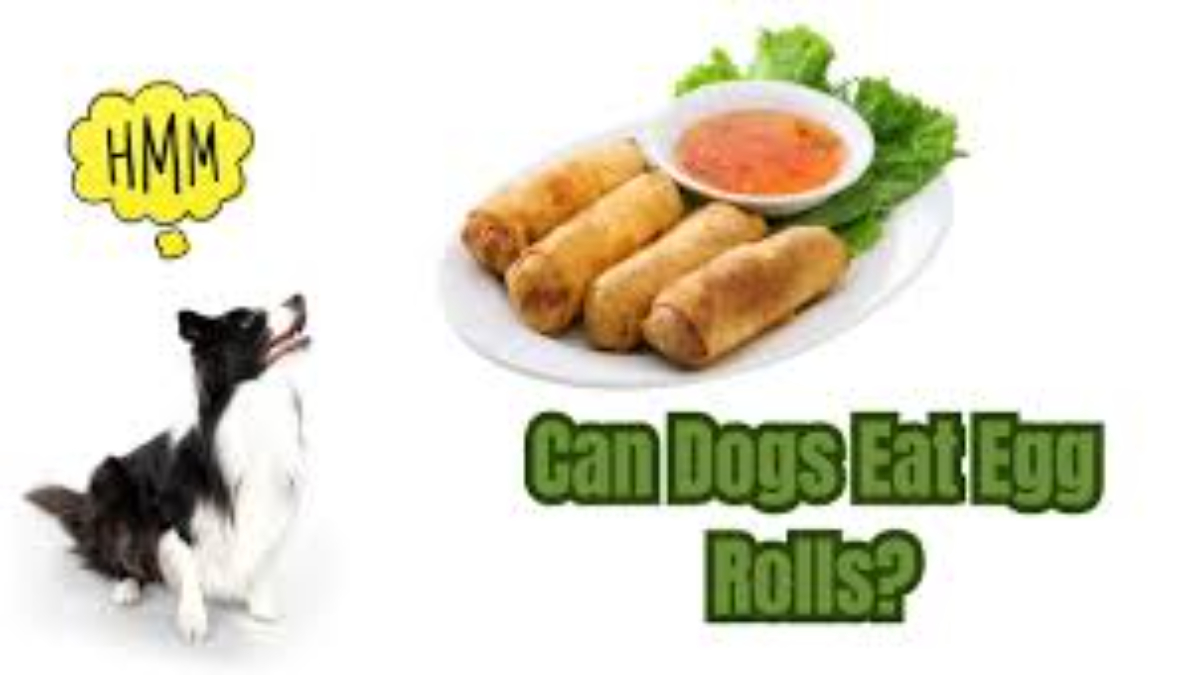Can dogs eat egg rolls? It’s a question that underscores the delicate balance between treating our pets and safeguarding their health. With their seductive fusion of tastes and textures, egg rolls beckon as a potential snack for our furry friends. However, beneath their crispy exterior lie myriad ingredients that may pose risks to canine well-being.
While cabbage, carrots, and other vegetable fillings offer essential nutrients, seasonings like garlic and soy sauce could spell trouble for dogs. Furthermore, the frying process adds a layer of concern, as the high fat content may trigger pancreatitis, a painful inflammation of the pancreas. Thus, pet owners are at a crossroads, weighing the allure of sharing a bite with their canine companion against lurking potential hazards.
The inquiry into whether dogs can partake in egg rolls reveals a complex interplay of risks and benefits. While providing a protein-rich treat with vitamins and minerals may be enticing, the reality is far more nuanced. While carefully crafted egg rolls void of harmful seasonings may offer a nutritious boost to a dog’s diet, the potential for digestive upset and other adverse reactions looms.
Moreover, the dental benefits of the crunchy texture must be weighed against the potential risks of consuming fried foods high in fat. Ultimately, pet owners are tasked with navigating this culinary problem, balancing the desire to treat their canine companions with the imperative to prioritize their health and well-being.
Ingredients in Egg Rolls
The many different recipes and regional preferences have an impact on the composition of egg rolls, which varies greatly. Typical fillings include cabbage, carrots, bean sprouts, and mushrooms, often complemented by protein sources like pork, chicken, or shrimp. Furthermore, egg rolls may undergo seasoning with soy sauce, garlic, ginger, and various spices to elevate their taste profile.
While some of these ingredients pose minimal risk to dogs in moderation, others could potentially jeopardize their well-being. Thus, pet owners must exercise discretion when sharing egg rolls with their canine companions.
Risks of Feeding Egg Rolls to Dogs
- High-Fat Content
Egg rolls are typically deep-fried or contain oil when cooking, resulting in high-fat content. Dogs that eat a lot of fat may get pancreatitis, which is an inflammatory disease that can be very painful and even fatal.
- Seasonings and Sauces
Many egg roll recipes include seasonings and sauces like soy sauce, garlic, and onion, which can harm dogs. Garlic and onion, in particular, are toxic to dogs and can cause damage to their red blood cells, leading to anemia. Even small amounts of these ingredients can be dangerous.
- Fried Outer Shell
The crispy outer shell of egg rolls is often made from wheat-based wrappers and deep-fried, resulting in a high carbohydrate content and added calories. Even though dogs can digest carbohydrates, overindulging in them may result in weight gain and other health problems, especially if the dog already has a carbohydrate diet.
Benefits of Feeding Egg Rolls to Dogs
Despite the inherent risks associated with feeding dogs egg rolls, there are potential benefits worth considering. If meticulously prepared with dog-friendly ingredients and devoid of harmful seasonings, egg rolls can serve as a source of essential nutrients for our canine companions. For instance, the vegetable fillings within egg rolls offer valuable vitamins and minerals, supplementing a dog’s diet with crucial nutrients.
Moreover, the satisfying crunchiness of egg rolls may yield unexpected dental benefits, aiding in the removal of tartar and plaque buildup as dogs chew. While these potential advantages may seem enticing, it’s paramount for pet owners to exercise prudence and prioritize their dog’s well-being when contemplating sharing egg rolls as a treat.
Safe Alternatives to dogs eat egg rolls
- Homemade Dog-Friendly Egg Rolls
If you’re determined to share egg rolls with your dog, consider making a homemade version using dog-friendly ingredients and avoiding harmful seasonings. Choose dog-safe veggies like carrots, green beans, and bell peppers, and lean meats like chicken or turkey. Bake the egg rolls instead of frying them to cut down on fat.
- Dog-Safe Treats
Instead of egg rolls, choose treats formulated specifically for dogs. These treats are available in various flavors and textures to suit your pet’s preferences. Look for treats made with natural, high-quality ingredients and free from harmful additives, preservatives, and seasonings.
- Fresh Fruits and Vegetables
Instead of egg rolls, give your dog fresh fruits and vegetables as a nutritious snack. Dogs can safely consume healthy fruits and vegetables rich in minerals, vitamins, and fiber. Dogs often choose apples, carrots, blueberries, and green beans.
Conclusion
dogs eat egg rolls may be tempting to share, but they come with significant risks that outweigh any potential benefits. The high fat content, harmful seasonings, and fried outer shell make egg rolls unsuitable for canine consumption. Instead of risking your dog’s health, choose safer alternatives like homemade dog-friendly egg rolls, specially formulated dog treats, or fresh fruits and vegetables. By making informed decisions about your dog’s diet and avoiding potentially harmful foods, you can ensure their health and well-being for years.
